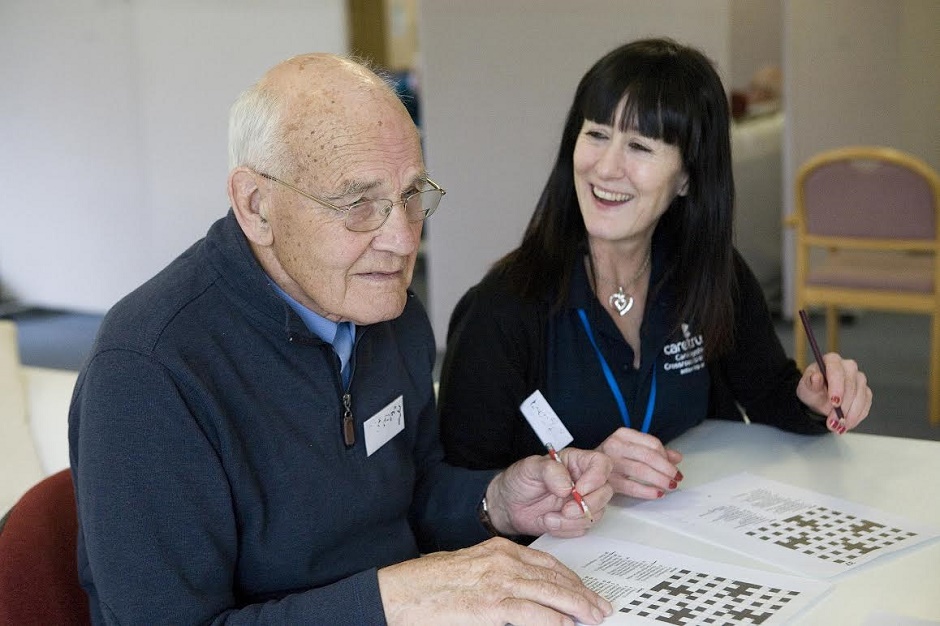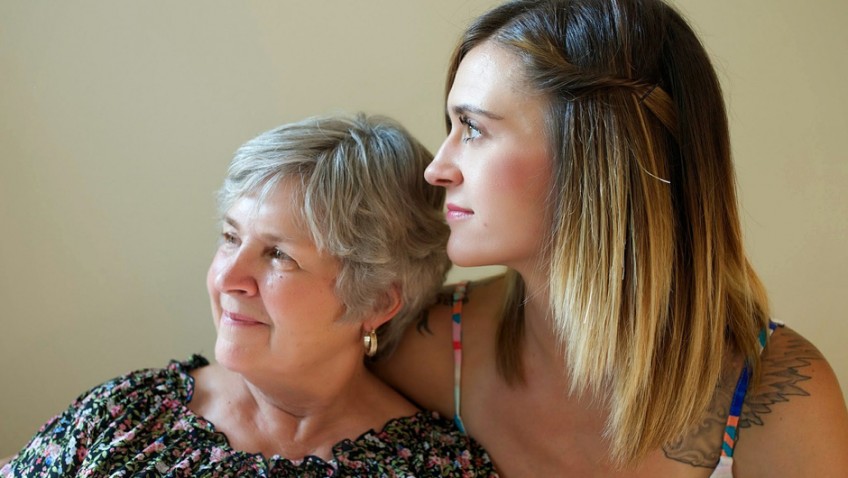If you learn to listen for clues as to how I feel, instead of what I say, you will be able to understand me much better (Mara Botonis)
You may find that over time your loved one’s behaviour may change, this can be puzzling and at times, upsetting since their actions may be completely out of character. This can be due to a number of reasons including not being able to recognise their own needs, being able to communicate their needs effectively and changes in their ability to reason or make judgements.
It is important to remember that their emotions may be driving their behaviour and if your loved one doesn’t feel listened to or feels disorientated they may justifiably become distressed, frustrated and scared. If you can understand why the behaviour is happening, you may be able to reassure them and help them feel more settled.It is worth standing back and trying to work out what is happening in order to help them and yourself in the meantime.
If their behaviour alters rapidly, such as your loved one becoming more confused and distressed in a short period of time, it may very well be caused by a physical problem such as an infection or pain. Does their body language show this, such as grimacing and holding themselves in a certain way? Ask yourself whether they have eaten and drunk recently as low blood sugar and dehydration can also cause confusion. Your loved one may also have other physical conditions that may have an impact on their dementia, contact your doctor in these instances as they may be able to assess if there are physical causes to their changes in mood and behaviour and treat them effectively.
Try and walk in your loved one’s shoes, they may be feeling frightened, ignored or frustrated. Difficulties often occur when their needs are not recognised and they may not be able to communicate them to anyone. People living with dementia may also experience depression, this low mood can affect behaviour also. By following some of the ideas in the previous columns, you may be able to reduce this and help your mood too. These include:
- Involving family, friends and social groups
- Keep to a routine
- Listen to your loved one’s feelings
- Share food
- Be together listening to music
- Go through meaningful photographs or objects
- Try and avoid challenging and disagreeing
If you are concerned and feel out of your depth try and stand back and ask yourself a few questions such as:
- Do I see any pattern to this behaviour?
- Is this behaviour in response to certain people?
- When does this behaviour occur?
- Where does this behaviour occur?
- Are they being ignored?
- Has something happened that may have triggered a change in behaviour?
Try and stay calm, practice some deep slow breathing, and avoid reacting suddenly, show them that you are listening. If something is clearly annoying them, take time to try and find out what it might me (it may be a need to go to the toilet and they cannot find where to go) and then you are on the way to helping them. We have to try and imagine how we would feel if we were ignored and our needs not listened to.
One example was of a lady I saw in the Memory Clinic; she and her husband were in the waiting room and she was obviously concerned about something and wouldn’t let it go, she kept standing up, pacing the floor and was very restless. Her husband was shattered and tried to make her sit down many times. She was starting to get quite distressed opening and closing her bag, clearly looking for something and playing repetitively with her hair. It finally transpired that she wanted to brush her hair and feel tidy for her appointment. I escorted her to the ladies, she brushed her hair, put on her lipstick and then returned to the waiting room where she settled and sat down calmly next to her husband.
I can’t begin to understand how exhausting it can be sometimes when you are caring for someone living with dementia but hope that some of these ideas will help make you understand and help you maintain a connection with your loved one. I also cannot stress enough, the need to involve other people in helping you both, as a short break can recharge your batteries. If you have no family or friends nearby there may be a local befriending service that may be able to offer some help.
 Repetitive behaviour often occurs and can be due to a number of factors including your loved one being unable to retain information, their needs being ignored and anxiety if left alone for a time. It may be best to avoid telling your loved one about events coming up until much closer to the time. The anticipation of an event may become stuck in their mind which may create anxiety and repetitiveness. (However, also don’t spring an appointment upon them at last minute either, you may need to use visual clues to indicate where you are going). Use of clocks and notes around the house may help with their difficulty in judging time. Be aware of the environment, try to avoid over stimulation such as the television being on constantly or much background noise. (I will cover this more in next month’s column).
Repetitive behaviour often occurs and can be due to a number of factors including your loved one being unable to retain information, their needs being ignored and anxiety if left alone for a time. It may be best to avoid telling your loved one about events coming up until much closer to the time. The anticipation of an event may become stuck in their mind which may create anxiety and repetitiveness. (However, also don’t spring an appointment upon them at last minute either, you may need to use visual clues to indicate where you are going). Use of clocks and notes around the house may help with their difficulty in judging time. Be aware of the environment, try to avoid over stimulation such as the television being on constantly or much background noise. (I will cover this more in next month’s column).
If your loved one is restless, they may be bored and need some stimulation or gentle exercise. Look for some items around the house that may engage them in activities, this doesn’t have to be mentally taxing, maybe something to keep them interested or engaged in, such as the use of a button box to rummage through or something associated with your loved one’s background (this could include folding clothes, fingering books, seed packets, pieces of wood and sandpaper, whatever you think your loved one might feel a meaningful association with). Sometimes it doesn’t always have to involve objects that your loved one associates with the past; tastes in music, interests and food preferences can change so you may need to be creative in your thinking.
I have one example of a retired university lecturer who felt content when given a basket of socks to match and put together. Sorting through buttons, materials etc can give a feeling of a sense of purpose. It is hard for us to move away from seeing our loved ones before they had dementia in terms of their ability as we are often defined by our roles and jobs in life. Learning to connect with your loved one living with dementia in the present moment means we have to understand what is happening, become creative and keep an open mind to what keeps them content.
By Jane Mullins
Jane Mullins (RGN, Bn, PGcASR) is a dementia nurse consultant. She has worked on the Memory Teams of Bath and Cardiff, managed a Nursing Home and cared for older people in many hospital settings. Her PhD; A Suitcase Full of Memories explores holiday reminiscence activities for people with dementia and their partners.
She is the creator of DUETcare, Dignity, Understanding and Empathy Training, specialising in training in Dementia and Care of the Older Person. She is involved in a number of creative projects including playfulness and the use of music and playlists for people living with dementia and their partners and families.
This column is here to help you understand what is happening and how the dementia may affect your loved one and offers tips and suggestions to help you. This column is not intended to replace your GP or Specialist Doctor, it is to give a guide to explain what may be happening to your loved one living with dementia and how you may be able to help through adopting interesting and helpful approaches.
Dementia affects people individually and different stages will come with different issues, therefore, the advice here is general and I would always recommend speaking with your doctor.






